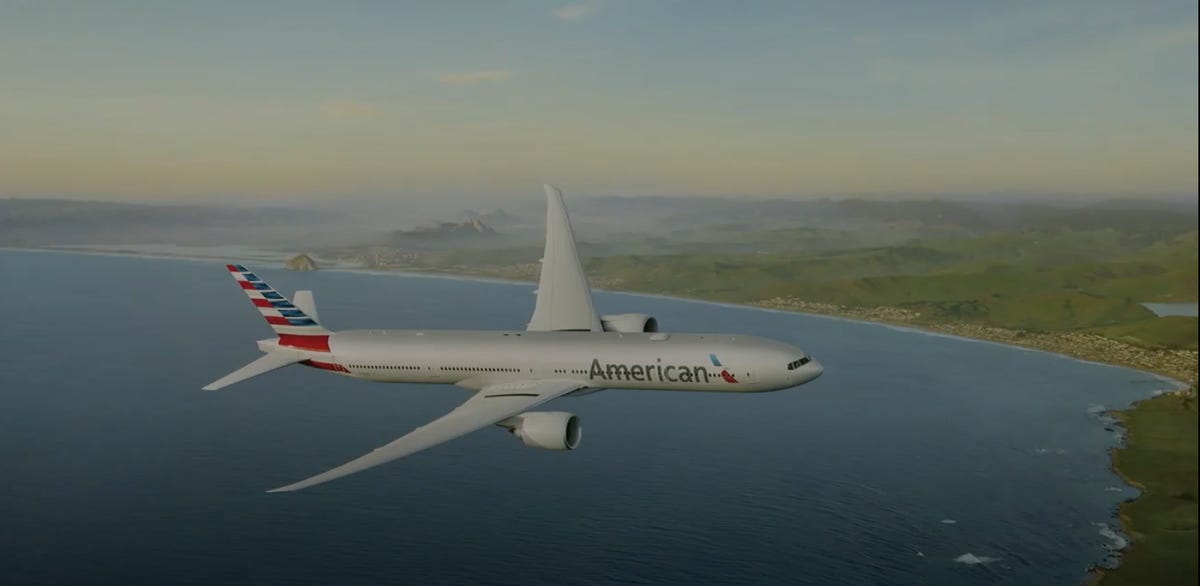
It’s going to be different. Very different.
Screenshot by ZDNetAirlines offered so much good news last week that it was hard to know how happy to be.
Delta, United, and Alaska all made noises about soon breaking even. Gary Kelly, Southwest’s CEO chirped that this “feels like the beginning of the end.”
So along came American Airlines to helpfully prepare customers for what the end might really look like.
It offered ABC‘s Good Morning America a glimpse at all the tech innovations it’s bringing to the passenger experience.
Some of them may seem a little chilling, even if the intention — officially– is to make passengers feel good.
This is the new normal. A normal where you go to the airport and are encouraged to touch nothing at all.
Instead, your face is your passport to everything but another country. You check in by staring into a camera. You drop your bag off by staring into another camera.
It’s surely the most glorious experience for all those who have obsessively taken selfies since toddlerhood.
“Everything you saw at our airport today didn’t exist a year ago,” said Julie Rath, American’s VP of customer experience.
Oh, I don’t know about that. Almost two years ago, I was at Minneapolis Airport watching Delta’s international passengers being boarded via facial recognition. This was supposed to be optional. It didn’t seem very optional at all.
[embedded content]
American, too, has been testing the new technology on some of its international flights. Easy to do, when they’re not exactly full. The intention now, though, is to install these systems for all domestic flights.
Some might mutter that it’s interesting how disasters often lead to greater intrusions. And it’s not as if facial recognition has an exemplary reputation thus far.
Yet here was Wrath’s answer on being asked if the future of air travel is your phone and your face: “In the future, you may not even need your phone. Just literally facial recognition can get you through the airport.”
I fancy one or two people will just literally feel uncomfortable about that.
It’s all very well instituting COVID-19-inspired innovations such as touchless payment on board or QR codes that allow you to have a video chat with a customer service robot — I’m sorry, I mean a real, live customer service person.
But when your face is your whole, your identity is surely disseminated even further and wider than it is now.
Ah, says, American. Please don’t worry about that. All the data is completely disappeared from its systems within 24 hours.
“Oh, that’s OK then,” say customers who have lived a while.
Here is where your desperation to fly again meets your concerns about privacy. Do you even stop to think about any privacy risks if you can finally — and, perhaps, safely — get on a plane and disappear for a little while?
Well, when you’ve already had your whole body being intimately photographed by the X-Ray machine every time you fly, why worry about whether your face might be floating in some distant ether?
This is the future. You don’t need to embrace it. It’s far too busy embracing you, and never letting go.























